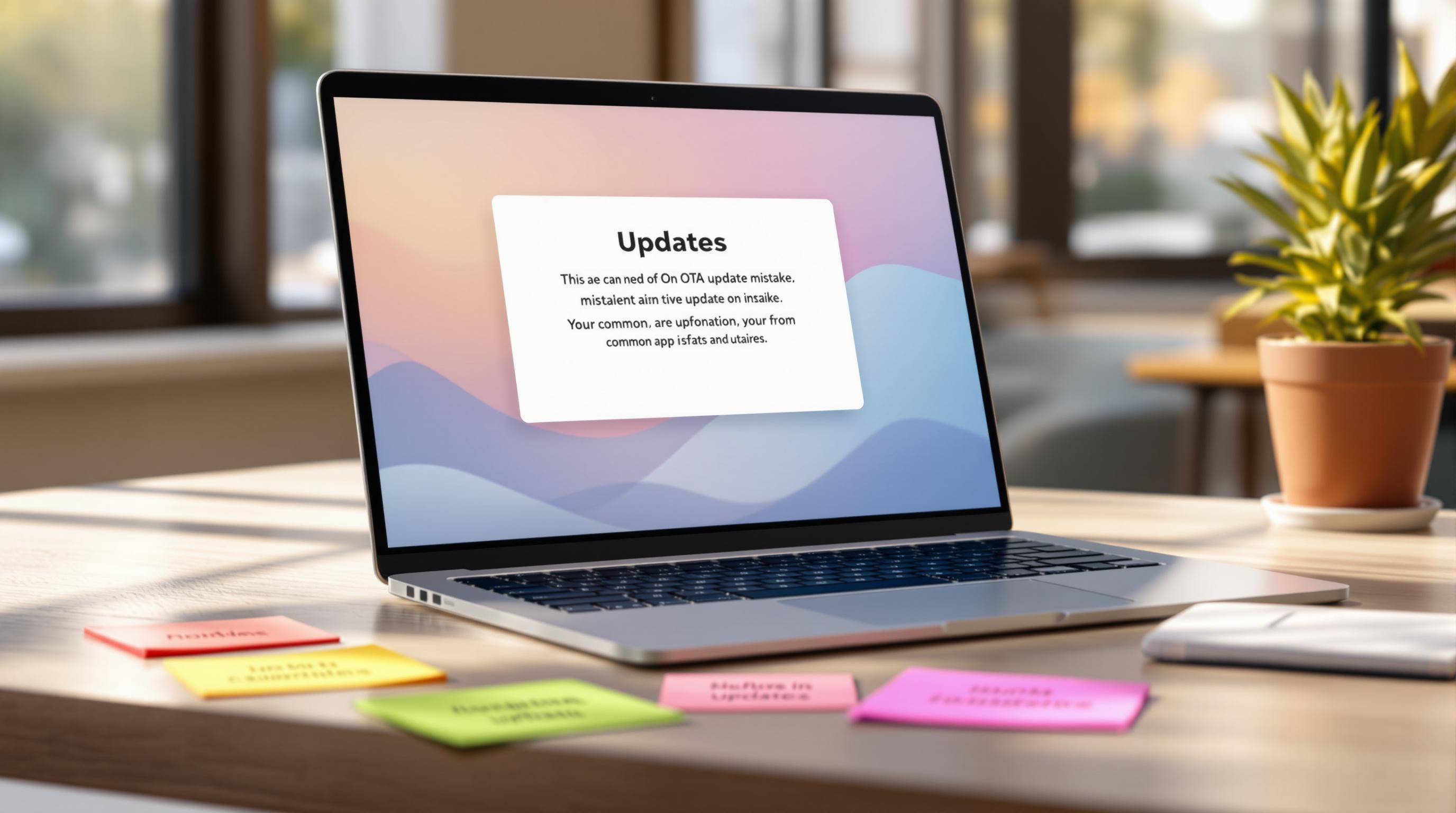If you’re developing mobile apps for the Chinese market, compliance with China’s data privacy laws is non-negotiable. Key regulations - Cybersecurity Law (CSL), Data Security Law (DSL), and Personal Information Protection Law (PIPL) - require strict data storage, user consent, and security measures.
Key Takeaways:
- Data Localization: Apps must store Chinese users’ data on servers within China (CSL).
- Consent Rules: Clear, explicit user consent is mandatory for data collection (PIPL).
- Cross-Border Transfers: Sensitive data often can’t leave China without approval (DSL).
- Penalties: Non-compliance can result in fines up to ¥50M (~$7.7M) or 5% of annual revenue.
Quick Overview:
| Regulation | Focus | Key Requirements |
|---|---|---|
| CSL | Network Security | Local data storage, security reviews, incident reporting |
| DSL | Data Classification | Risk assessments, records, cross-border restrictions |
| PIPL | Personal Data | User consent, data minimization, user rights |
Compliance requires significant investment in technical solutions like encryption, regular audits, and robust update processes. Failing to comply risks financial penalties and app removal from Chinese app stores.
China’s Main Privacy Laws
Cybersecurity Law (CSL) Requirements
The CSL, in effect since June 1, 2017, establishes strict rules for network and infrastructure operators. For mobile apps, the key requirements include:
- Data Localization: Personal data must be stored on servers located within mainland China.
- Security Reviews: Apps handling sensitive data must undergo mandatory security assessments.
- Network Protection: Operators need to adopt multi-level network security measures.
- Incident Reporting: Security incidents must be reported within specified timeframes.
Data Security Law (DSL) Standards
The DSL builds on the CSL by introducing a structured approach to data management, focusing on classification. Here’s how data is categorized under this law:
| Data Classification | Security Requirements | Cross-border Transfer |
|---|---|---|
| Core State Data | Strictest protection | Not allowed |
| Important Data | High-level protection | Requires security assessment |
| General Data | Basic protection | Must follow standard rules |
Mobile apps must follow these practices:
- Use hierarchical data classification systems.
- Perform regular risk assessments.
- Keep detailed records of data processing activities.
- Establish an emergency response mechanism.
Personal Information Protection Law (PIPL) Rules
The PIPL provides detailed regulations on handling personal data. Mobile apps must comply with these key rules:
- User Consent: Obtain clear and explicit consent for each type of data collected.
- Data Minimization: Only collect information that is absolutely necessary.
- User Rights: Offer tools for users to access, correct, or delete their data.
- Data Portability: Allow users to transfer their data to other platforms.
Non-compliance can result in severe penalties, including fines of up to 50 million yuan (around $7.7 million) or 5% of the previous year’s revenue. This pushes developers to prioritize compliance and adopt robust data protection measures.
These three laws collectively form a strict regulatory landscape for mobile app developers operating in China, especially for apps dealing with sensitive information like financial data, health records, or location details.
Mobile App Development Requirements
User Permission Standards
In China, mobile apps must obtain clear and explicit consent from users before collecting any data. Apps should also provide users with straightforward control over permissions. To achieve this, use simple, easy-to-understand interfaces that explain why each data request is necessary. This approach helps maintain transparency and aligns with regulatory expectations.
App Store Filing Process
Submitting an app in China involves several steps. You’ll need verified business credentials, detailed technical documentation (like privacy policies and system architecture), and your app must pass rigorous security reviews, often conducted by third-party organizations. If your app deals with sensitive data or transfers data across borders, you’ll also need to collaborate with a licensed local partner to meet regulatory requirements.
Extraterritorial Application of China’s Personal Information …
Developer Risks and Obstacles
Developers face a range of challenges that go beyond technical updates, making compliance with China’s privacy laws particularly demanding.
Implementation Costs
Meeting China’s privacy law requirements often demands significant investment in both technology and finances. Developers may need to improve their data storage systems to comply with localization rules and upgrade security measures to meet strict standards. Many companies also turn to compliance experts or third-party services to ensure their systems meet regulatory expectations. These upfront costs are just the beginning, setting the stage for ongoing challenges.
Non-Compliance Consequences
Failing to comply with China’s privacy laws can lead to serious consequences. These include financial penalties, regulatory actions, and even the removal of apps from local app stores. Such outcomes highlight the critical importance of following the rules closely.
Changing Rules and Updates
China’s data privacy regulations are in a constant state of change. Regulatory bodies like the Cyberspace Administration of China (CAC) frequently release new guidelines and interpretations. Developers must have systems in place that can quickly adjust to these changes. Regular monitoring, periodic reviews, and updating data management practices are crucial to staying compliant in this shifting environment.
Compliance Methods and Solutions
Meeting compliance requirements involves implementing strong technical measures and following clear, structured processes.
Technical Solutions
End-to-end encryption plays a key role in protecting data. Capgo ensures secure data transmission and storage, limiting access to only authorized users.
CI/CD integration helps minimize human errors and ensures updates align with regulatory requirements. For example, automated systems have been shown to achieve a 95% user update rate within 24 hours [1].
Version control and rollback features provide quick fixes for issues while maintaining proper audit trails. Here’s a breakdown:
| Feature | Compliance Benefit | Implementation Impact |
|---|---|---|
| End-to-end Encryption | Protects data during transmission | Aligns with PIPL data protection rules |
| Automated Deployments | Reduces human error in updates | Ensures consistent compliance |
| Version Control | Keeps detailed audit trails | Aids in regulatory documentation |
| Rollback Capability | Quickly resolves issues when needed | Lowers risk of non-compliance |
These tools directly tackle compliance challenges. However, technical solutions alone aren’t enough - developers must also follow structured practices to maintain compliance.
Developer Guidelines
To complement technical tools, developers should follow specific practices to address compliance needs:
Data Protection Measures
Implement protocols that meet PIPL standards, such as secure consent mechanisms and thorough records of data processing activities.
Regular Compliance Audits
Conduct routine reviews of how your app handles data. As Bessie Cooper highlights:
“Capgo is a must-have tool for developers who want to be more productive. Avoiding review for bugfix is golden.”
User Consent Management
Create clear, transparent processes for user consent that explain why data is being collected. Rodrigo Mantica shares:
“We practice agile development and Capgo is mission-critical in delivering continuously to our users!”
Update Management Strategy
With regulations constantly changing, having a solid update management approach is essential. Statistics show that effective update management leads to an 82% global success rate in maintaining compliance [1].
Conclusion
China’s data privacy regulations have reshaped the mobile app development industry, requiring developers to implement strict compliance measures and advanced technical solutions. Key laws like the Cybersecurity Law (CSL), Data Security Law (DSL), and Personal Information Protection Law (PIPL) have introduced a challenging regulatory environment, emphasizing user permissions, data storage, and security protocols.
Developers have adjusted their practices to align with these regulations. For example, 95% of active users update to the latest app version within 24 hours [1], highlighting the importance of efficient compliance processes. Platforms like Capgo showcase how streamlined compliance can be achieved, boasting an 82% global success rate [1].
Meeting these requirements involves significant financial and operational investments. Developers must prioritize technical measures such as end-to-end encryption, maintain detailed audit trails, manage user consent effectively, and ensure seamless update processes to succeed in China’s market.
As regulations continue to evolve, flexibility remains essential for maintaining compliance. Capgo has been recognized for its ability to deliver cost-efficient and agile update solutions that align with stringent standards [1].
For long-term success, app developers in China must adopt a proactive strategy that combines strong technical systems, strict regulatory adherence, and efficient update management.




